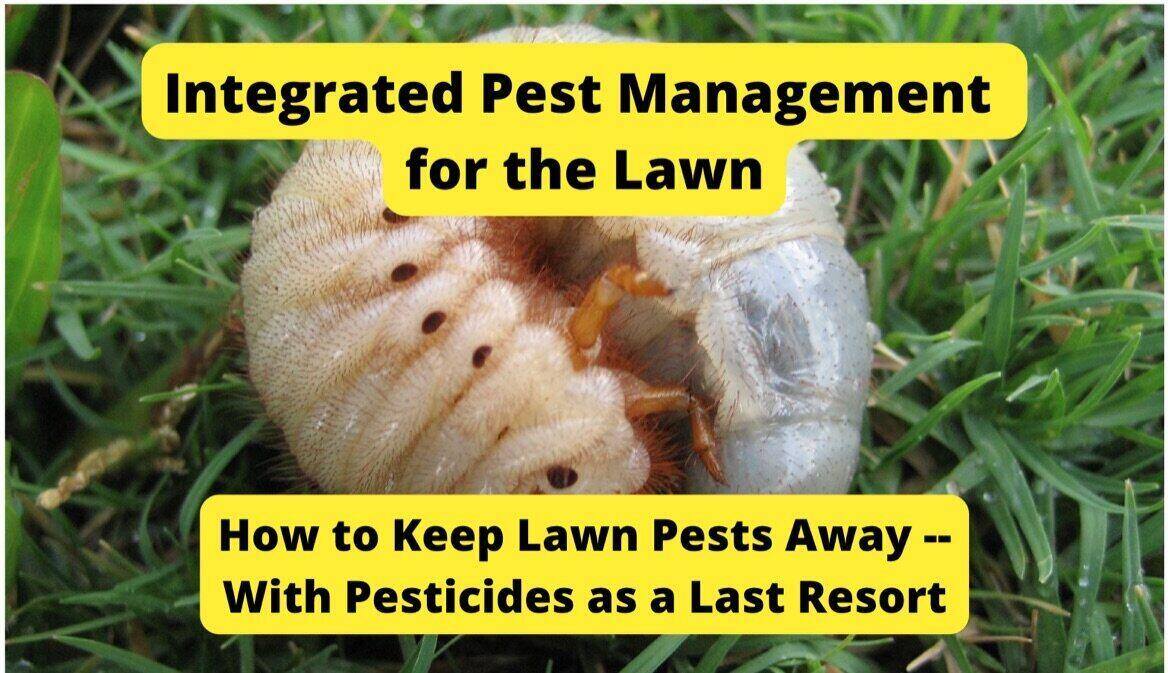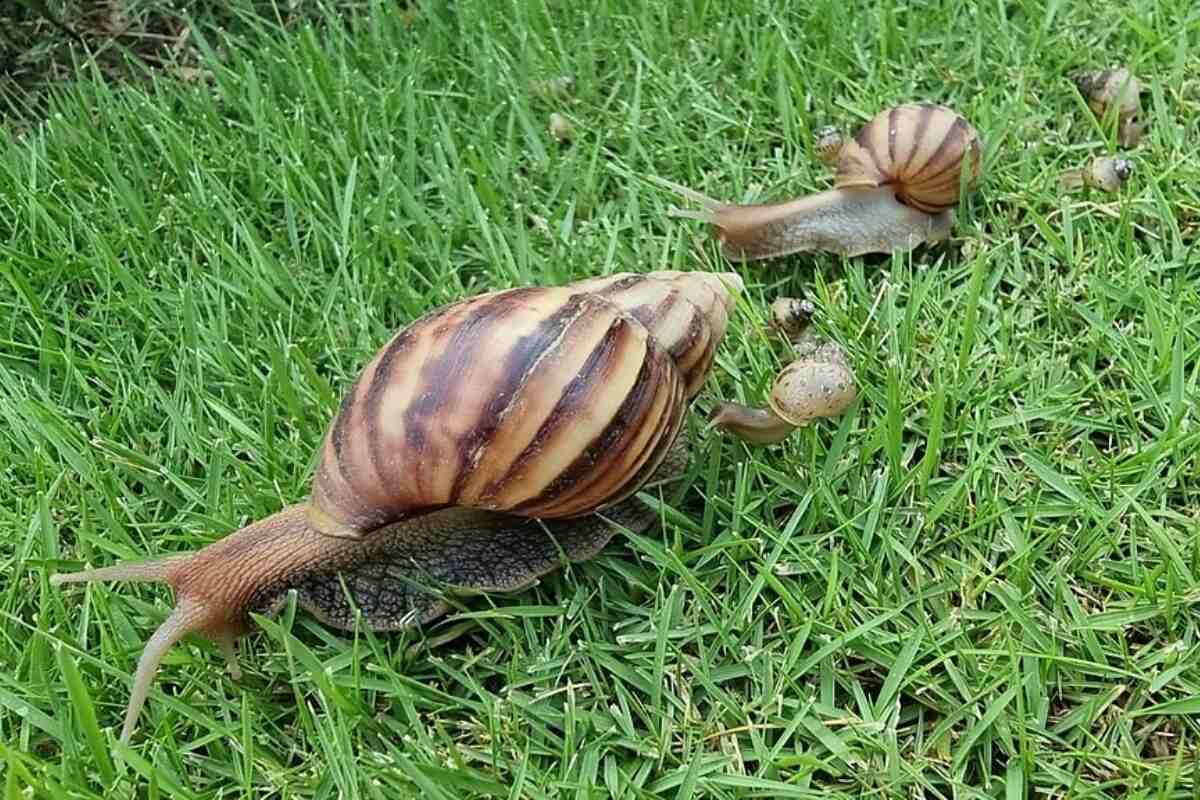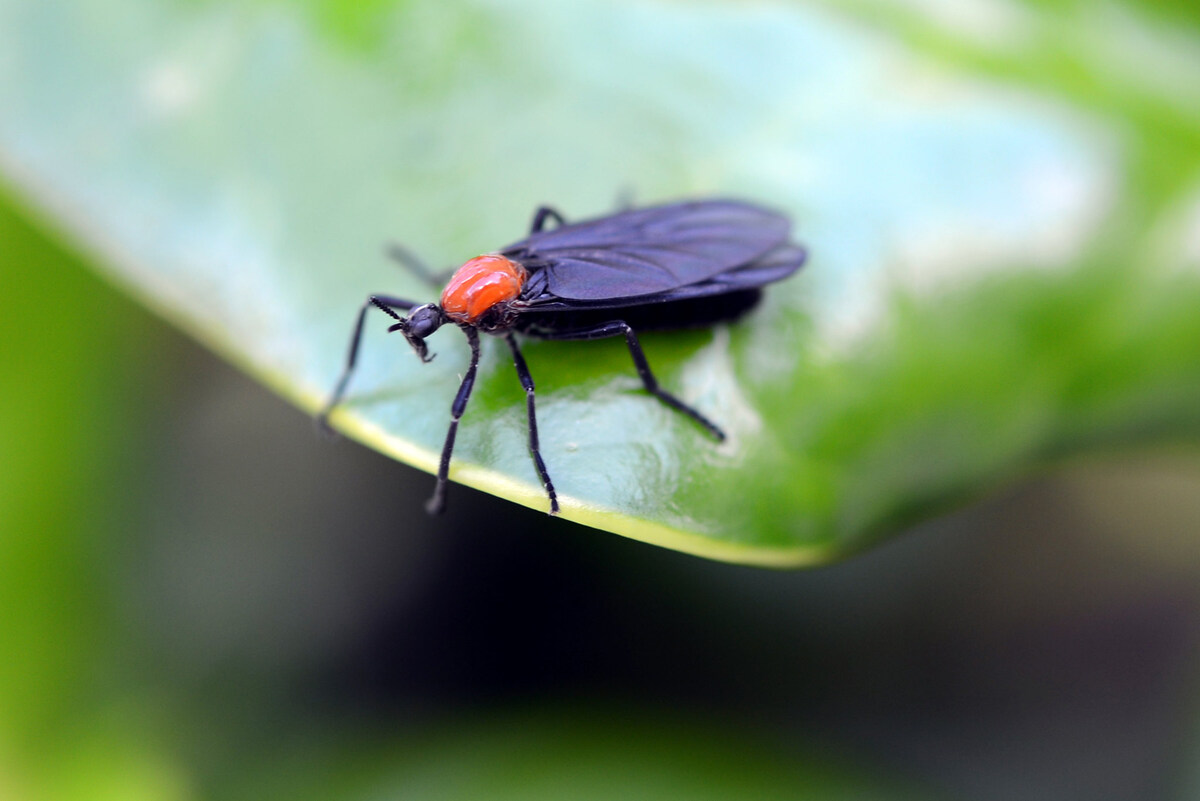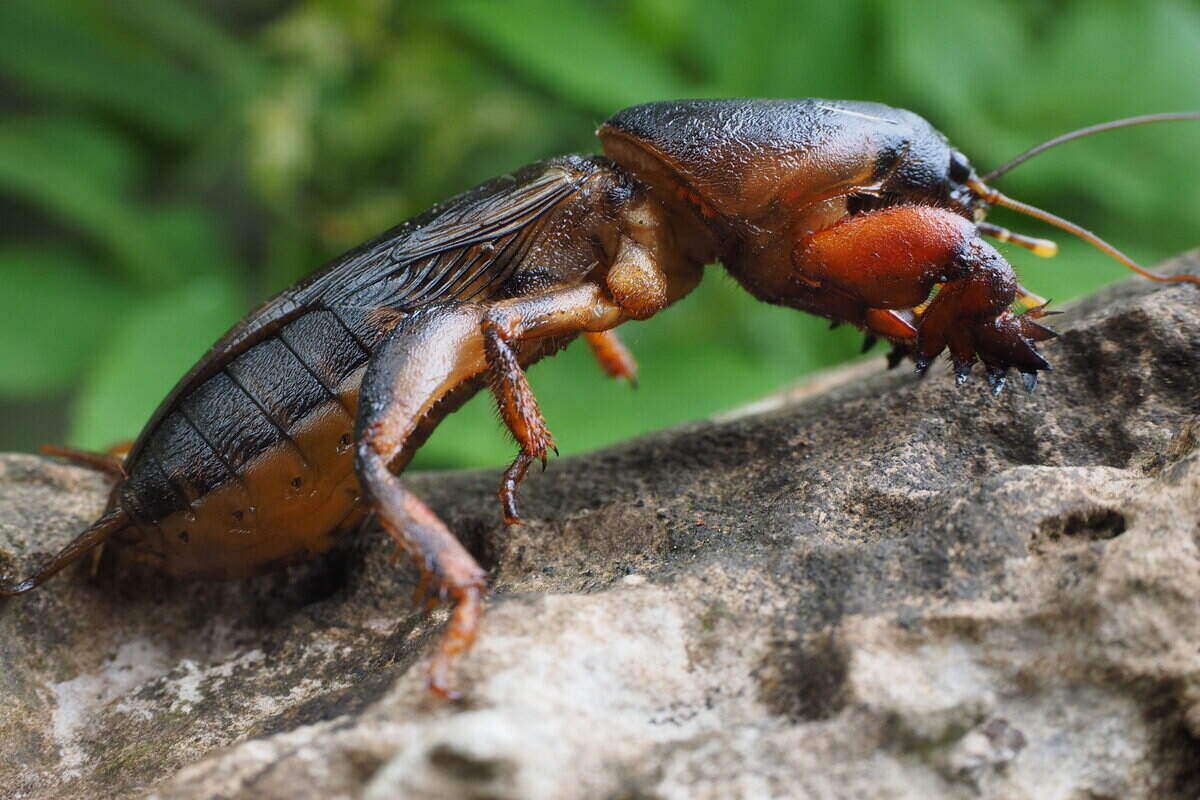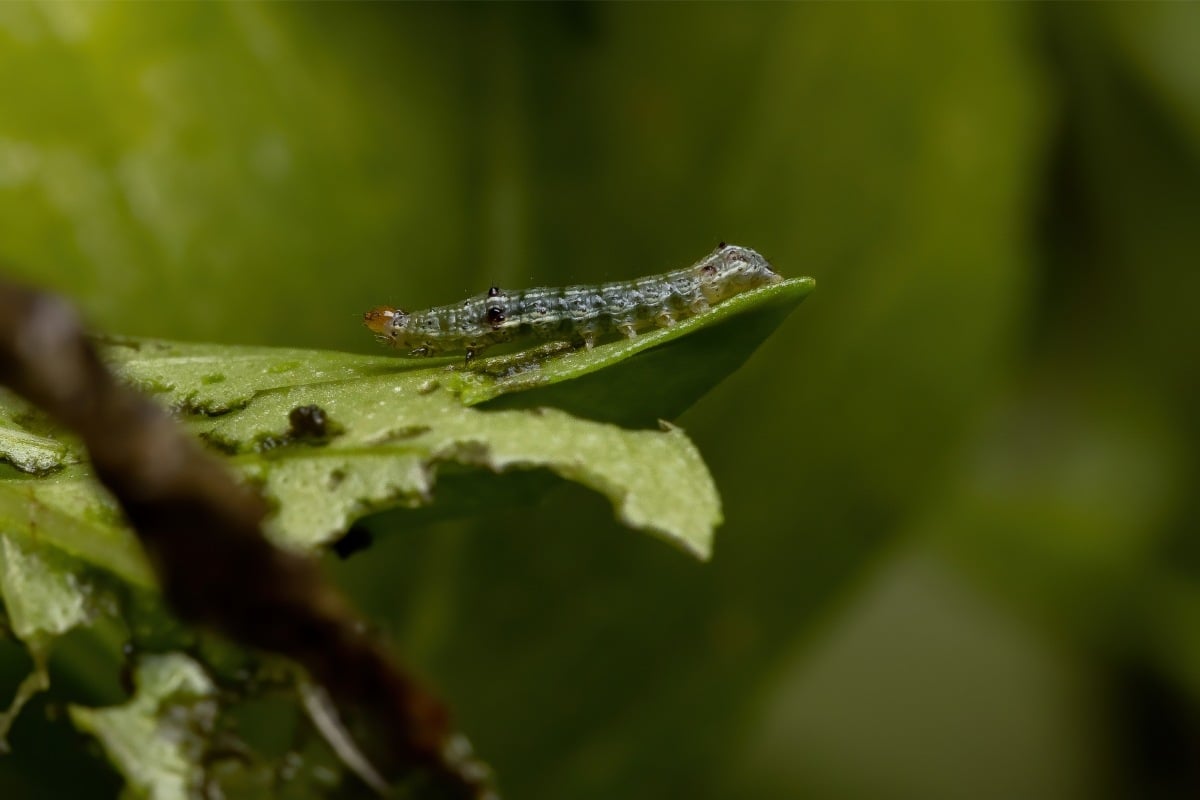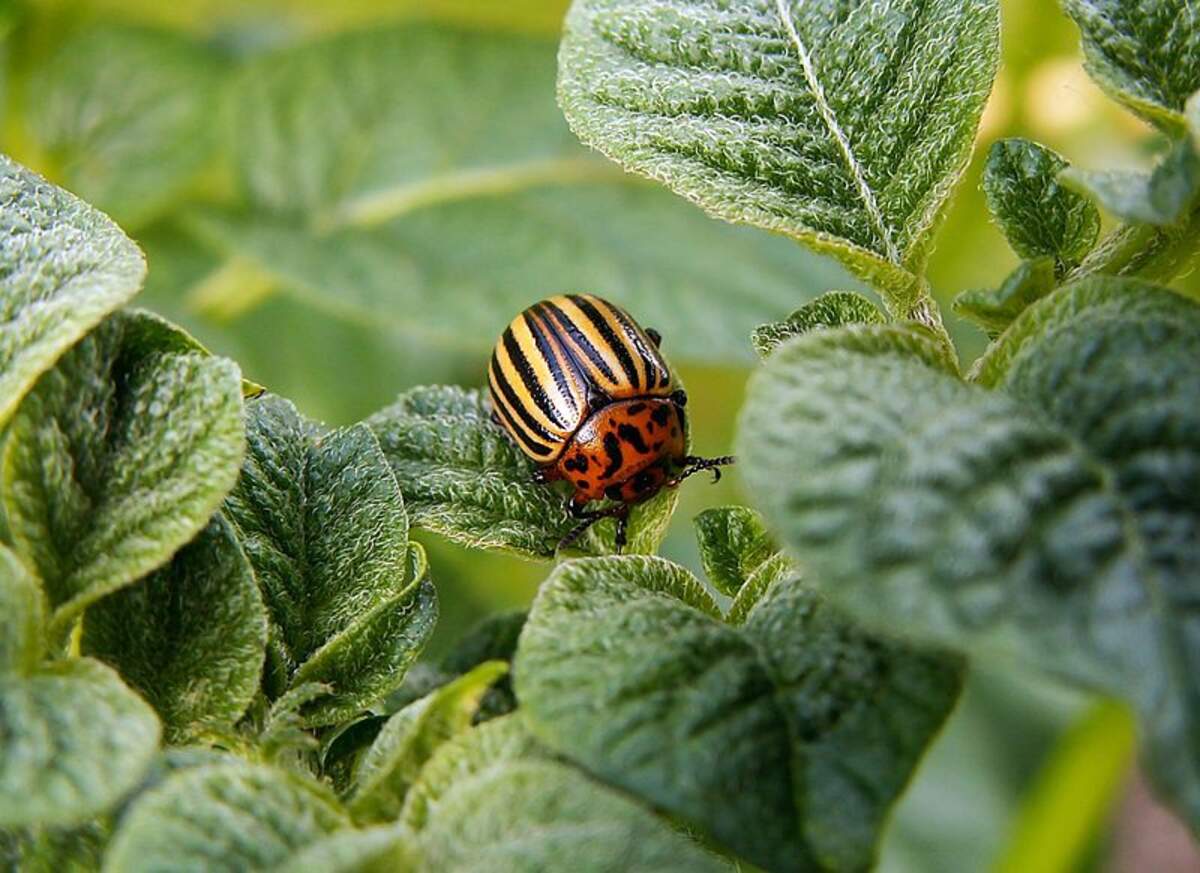
So what is organic pest control? For starters, organic pest control does not mean “chemical-free.” It also doesn’t always mean “safe.” Learning the basics of organic pest management helps gardeners and homeowners make the best decision for their landscape, home, and planet.
For example, that homemade pesticide recipe you found online might not be as “organic” as you think. While organic pest control is typically safer for the environment than inorganic pest control, eco-friendly gardeners often mistake organic pesticides for being chemical-free.
Organic vs. Inorganic Pest Control
The differences between organic and inorganic pest control are pretty simple:
Organic pest control is the means of controlling pests without using human-made chemicals. Some organic pesticides do contain chemicals, but these chemicals exist in nature. In the context of this article, organic pest control includes near-organic pesticides.
Inorganic pest control is the means of controlling pests using human-made chemicals created in a laboratory.
In other words, the chemicals found in inorganic pesticides do not exist in nature, while the chemicals in organic pesticides are naturally derived from plants, animals, or minerals.
Remember the dish soap the homemade recipe called for? Most conventional dish soaps contain synthetic chemicals that don’t exist naturally, making the recipe inorganic.
WARNING: Just because a chemical exists naturally does not guarantee it’s safe. Many natural chemicals are more toxic than synthetic chemicals, especially in high doses. Look for the following words on the pest control product label: “WARNING,” “DANGER,” “CAUTION,” “TOXIC,” or “POISON.”
What Are Some Examples of Organic Pest Control?
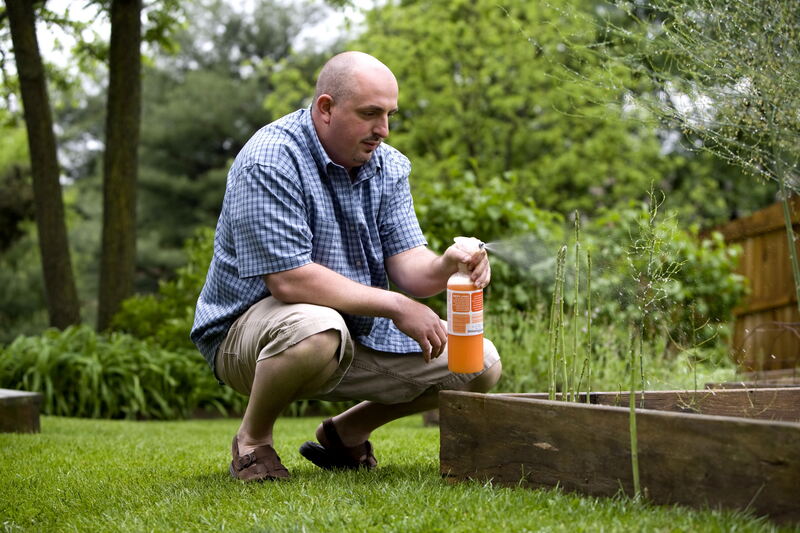
Remember, organic pest control is any method that controls a pest problem without using human-made chemicals.
Here are some examples of organic pest control:
- Exclusion: Keep out critters by installing a physical barrier around your garden or lawn, such as fences or row covers. You can also install an underground barrier to keep out tunneling garden pests, such as moles and gophers.
- Neem oil: This is a naturally occurring pesticide made from neem tree seeds. It helps control leaf miners, beetles, thrips, whiteflies, lace bugs, mealybugs, aphids, spider mites, caterpillars, and leafhoppers.
- Spinosad: Spinosad is derived from the fermentation of a soil bacterium called Saccharopolyspora spinosa. It controls caterpillars, thrips, spider mites, squash bugs, ants, squash vine borers, fruit flies, cabbage worms, mosquitoes, diamondback moths, leaf miners, Colorado potato beetles, and tomato hornworms.
- Diatomaceous earth: This handy pesticide is the powdered form of fossilized microscopic aquatic organisms called diatoms. Sprinkle this in your landscape to control cutworms, cockroaches, slugs, ants, millipedes, fleas, ticks, sowbugs, and other soft-bodied insect pests.
- Beneficial nematodes: These microscopic roundworms exist naturally in soil. Different nematode species control different pest species.
- Sulfur: Sulfur is found in plants, soil, food, and water. It helps control fungal diseases taking over your vegetation, such as powdery mildew, brown rot, rusts, and leaf spots. It also controls psyllids, mites, and thrips.
- Bacillus thuringiensis: Bt is a soil microbe. Depending on the strain of Bt released in the landscape, it can manage many pests in the early stages of their life cycle, including elm leaf beetles, mosquitoes, Japanese beetles, black flies, and caterpillars.
- Milky spore: This bacterium helps control Japanese beetle larvae.
- Habitat manipulation: Physically changing the pest’s habitat creates an inhospitable environment and drives them out.
- Food and water removal: Help manage a pest infestation by removing nearby food and water sources.
Pros and Cons of Organic Pest Control
If you want to darken that green thumb, organic pest control is the way to go. In general, organic pest control is safer for the local ecosystem and planet than inorganic pest control. Let’s take a closer look:
Pro: Protects Local Ecosystems
An ecosystem is a complex network of organisms that depend on each other for survival. An imbalance of one organism can affect the livelihood of another organism.
Many inorganic pesticides (also known as synthetic pesticides) are non-selective, which means they’ll kill non-target organisms they come in contact with.
For example, suppose you spray your vegetable garden with a non-selective inorganic pesticide. In that case, you’ll also harm the beneficial insects that help your garden’s ecosystem thrive, such as butterflies, bees, and ladybugs.
Organic pest control can reduce this toxic exposure and help protect beneficial organisms in the lawn and garden. According to the Virginia Cooperative Extension, some organic pesticides can control the target pests while protecting non-target organisms.
Pro: Safer for the Environment
Organic pest control is typically safer for the environment than inorganic pest control. Here’s why:
Inorganic pesticides contain human-made chemicals that don’t break down in the environment. These chemicals then pollute waterways and local ecosystems via rainwater runoff. Organisms living in these ecosystems, such as birds and fish, are exposed to toxic levels of synthetic chemicals and eventually die.
Organic pesticides aren’t always safe in high doses, but they’re generally more eco-friendly than synthetic pesticides. While some organic pesticides decompose, not all do. But since these chemicals already exist in nature, they’re typically less of a threat to organisms than synthetic chemicals.
Brownie points: Some organic pest control methods are chemical-free, which means they don’t leave any chemical residue in the environment. Examples include exclusion barriers and introducing the pest’s natural enemy (aka biological control).
Con: Higher Price
Organic pesticides are often more expensive than the inorganic pesticides you might find at your local store.
Con: Special Timing and Handling
Synthetic pesticides usually have a straightforward application process, whereas organic pesticides require extensive knowledge of the pest and must be properly timed. For example, many organic pesticides will only work against a specific species at a particular stage of its life lifecycle, requiring you to identify the pest correctly and monitor its life stages.
Con: Shorter Protection Period
Synthetic pesticides usually offer longer protection periods than organic pesticides. Organic pest control often requires persistence and reapplications.
Inorganic and Organic Pest Control Compared
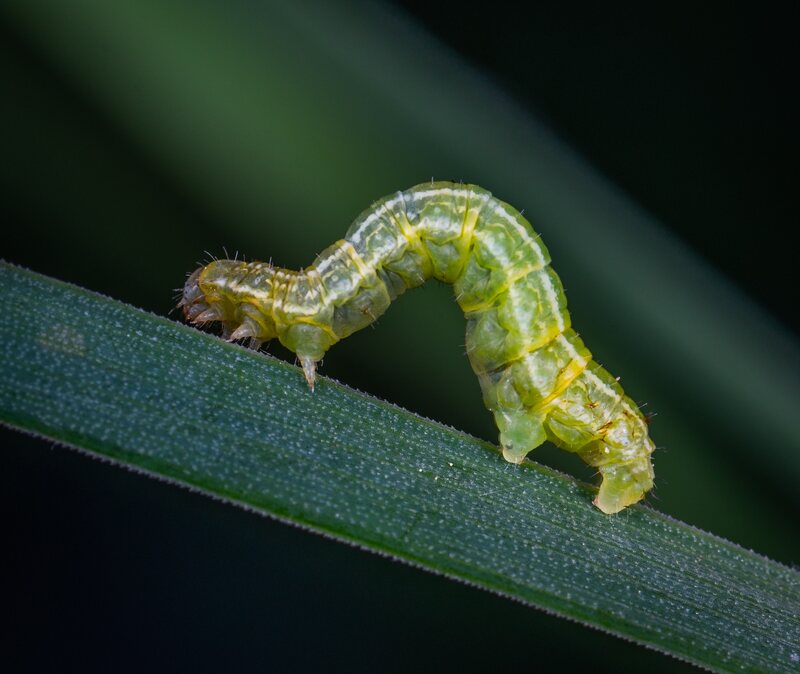
Although organic pest control is typically easier on the environment, some people may prefer the convenience and lower cost of inorganic pest control.
Here’s how the advantages of inorganic pest control stack up against organic pest control:
| Inorganic pest control | Organic pest control |
| Synthetic pesticides are typically more affordable than organic options. | Organic pesticides are typically more expensive than inorganic pest control options. |
| Most inorganic pest control methods offer longer protection than organic pesticides. | Organic pesticides typically have a shorter protection period than inorganic pesticides, especially if they are the kind to decompose. |
| Inorganic pesticides usually provide faster results than organic pesticides. | Organic pesticides may require a bit of patience before results are noticeable. |
| Most synthetic pesticides have a convenient, straightforward application process. | Organic pest control methods typically require special timing, handling, or installation. |
| Inorganic pesticides usually have a longer shelf-life than organic pesticides. | Organic pesticides typically have a shorter shelf-life than inorganic pesticides and are time-sensitive. |
FAQ About Organic Pest Control
Unless noted otherwise, when we refer to organic pesticides in this article, we’re also referring to near-organic pesticides. Here’s what that means:
A true organic pest control substance contains the element carbon. But some pesticides that are considered organic (because their chemicals exist in nature) don’t contain carbon, such as diatomaceous earth.
This puts into question the true organic status of some pesticides. But in the context of this article, we’ll be referring to near-organic pesticides as organic.
Here’s another significant difference between organic and near-organic pesticides:
Pure organic substances decompose because they contain carbon. On the other hand, microorganisms and sunlight cannot decompose near-organic substances. Why? Because near-organic substances don’t have carbon.
Although near-organic pesticides can’t decompose, they’re typically kinder to the environment than inorganic pesticides. Inorganic pesticides won’t decompose either, but they’re more likely to harm vulnerable ecosystems because their chemicals are synthetic and don’t exist in nature.
Organic pesticide application is possible on your own as long as you feel comfortable handling the product. However, remember to read and follow the product’s application, storage, and disposal instructions. Contact a local pest control company for assistance if you’re concerned about your safety or misapplying the product.
The internet is loaded with homemade pesticide recipes for organic gardeners, some good and some bad. It comes down to researching the listed ingredients, your risk tolerance, and whether you plan to sell or distribute the treated food.
Ingredients: Remember, the terms “organic” and “natura” are often misused. A recipe that calls for conventional dish soap while also claiming to be a natural method might not meet your eco-friendly needs.
The dish soap can also harm your plants if you’re not careful. Before mixing ingredients, confirm the ingredients are safe for your plants and the environment.
Risk: Online recipes don’t always come with clear application instructions or safety information. Misapplying the pesticide could harm you and your plant.
Selling treated food: Plan to sell your veggies at the farmers market? For legal reasons, you won’t want to use homemade pesticide recipes. The Federal Food, Drug, and Cosmetic Act (FFDCA) and the Federal Insecticide, Fungicide, and Rodenticide Act (FIFRA) are two laws that regulate pesticides. Under the FIFRA law, a pesticide must be registered with the EPA (or have an official exemption from the requirements) for you to apply it legally.
Additionally, if residue from the homemade recipe gets in or on food, such as livestock or food crops, it would be illegal to sell or distribute the food under the FFDCA law.
When to Hire a Pest Control Pro
Insects, lawn diseases, and weeds might be ruining your lawn and garden, but don’t let them ruin your weekend. Hire a local pest control professional who can get rid of what’s bugging or eating your greenery. Several pest control companies offer organic pest control services, so remember to inquire about your options.
Main Image Credit: Zdeněk Chalupský / Wikimedia Commons / CC0 1.0
